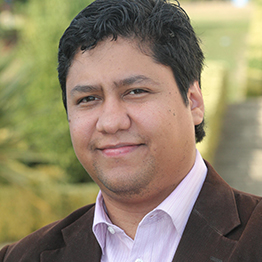BLOCK 1
Strategic direction
BLOCK 2
Understanding AI
BLOCK 3
Working with AI
BLOCK 4
Leading with AI
|
Wednesday, June 4th |
|
|
09.00h |
Apply |
|
09.30h |
Three decisive principles for university governance. |
|
10.30h |
Focus on Impact: Strategy Over Planning; Implementation Over Perfection. |
|
11.20h |
Coffee break |
|
12.00h |
Strategic Leadership: Adding Value from the Management Team. |
|
13.00h |
Strategic Management in Higher Education: Approach to the Exponential Age. |
|
13.50h |
Food |
|
15.10h |
What Do Companies and Society Need from Universities in AI? |
|
16.10h |
The strategic importance of the question in the era of Generative AI. |
|
20.00h |
Cocktail dinner (smart casual) |
|
Thursday, June 5th |
|
|
09.00h |
Door opening |
|
09.30h |
Towards an AI manager: rules and regulations European and Compliance in the management University. |
|
10.30h |
Artificial Intelligence and University. How to incorporate AI for the achievement of strategic objectives. |
|
11.20h |
Coffee break |
|
12.00h |
Limitations and Ethical Challenges of Artificial Intelligence |
|
13.00h |
Developing your institutional brand: public affairs, reputation and influence. |
|
13.50h |
Food |
|
15.10h |
Unlocking Global Fundraising Potential: Strategies and Innovations. |
|
16.10h |
Artificial Intelligence in the improvement of University processes core topic . |
|
18:00h |
cultural visit and dinner in Madrid on your own. |
|
Friday, June 6th |
|
|
09.00h |
Strategic Scenarios for University Transformation: AI and the Future of Education. |
|
10.00h |
work by groups in the spaces provided.
|
|
12.30h |
exhibition by groups.
|
|
13.30h |
exhibition conclusions and closing. |
The course will be in Spanish and English and will have a simultaneous translation system.
BLOCK 1. Strategic management

Peter Eckel
Institutions around the world are navigating complex and dynamic contexts. The primary tool for doing this is strategic planning. The common approaches in higher education have emphasized the planning and underplayed the idea of strategy. The results have been uneven with many universities gaining little return on their efforts. And they are doing so at a time in which they have little capacity to waste. This session will focus on how university leaders can leverage the notion of strategy given their specific context and create the organizational space, time, and capacities to execute strategy.

Alfonso Sánchez-Tabernero
This session addresses three essential requirements for good governance in higher education institutions: a) deepening one’s identity, reflecting on the mission and the impact one wishes to generate in society; b) achieving high motivation among faculty and other professionals, so that each person desires to perform excellent work; c) involving a diverse group of stakeholders to support the university’s projects.

Marta M. Elvira
The session designed for executive leaders in universities who currently manage complex challenges derived from external and internal transformation pressures. We will focus on developing a strategic vision, aligning it with institutional governance, and guiding diverse university stakeholders in executing the vision to drive high performance. Through a process-centered approach, participants will address their ability to govern effectively, execute strategies, and lead meaningful organizational change as members of the top management team.

Tania Rhodes-Taylor
In an increasingly volatile and competitive environment a university’s reputation, and an institution’s ability to develop and protect that reputation has never been more important. Whether it’s recruiting the best academics and students, attracting academic and industry partners, working with government and all that may entail, or maintaining our social licence to operate, reputation plays a fundamental role in delivering on institutional ambitions. This session will explore the opportunities and risks involved in proactively developing your institutional brand, what a reputation strategy needs to address and some of the practicalities of making this happen.
BLOCK 2: Understanding AI

Klara Jelinkova
Using examples from Harvard University and other universities in the US, this session will explore how institutions are navigating the impact of rapid technological advancements and their strategies to enable innovation, highlighting the applicability of these strategies beyond the US context. It will discuss various initiatives to adapt to and leverage new technology developments, with a focus on AI, while considering the realities faced by universities globally. The session will highlight approaches to integrating cutting-edge research and technology into curriculum and operations to enhance both academic and operational frameworks. Insights from Azeem Azhar’s "Exponential Age" will be used to contextualize these strategies, ensuring that the practices and guidelines shared are adaptable and relevant to academic leaders such as Presidents, Vice-Presidents, and Deans from various institutions.

Sampsa Samila
This talk explores the evolving demands and expectations that businesses and society hold for universities regarding AI education, research, and application. There is a clear need for “developing specialized talent”—universities must prepare a new generation of AI professionals who not only possess deep technical skills but also the agility to envision and drive innovative solutions. This requires a shift in how universities equip students, emphasizing both technical prowess and conceptual thinking to handle AI’s transformative potential.
In parallel, “collaborative applied research” is crucial, as companies seek dynamic partnerships with universities to address real-world challenges. These partnerships can foster advancements that redefine industries and support the broader adoption of AI, enabling organizations to integrate cutting-edge insights and adapt their operations effectively.
Society at large looks to universities to make a “meaningful contribution to the ethics and governance of AI”, as well as to address “critical social issues”—from education to healthcare to sustainability. As a bridge between rapid technological change and societal well-being, universities must take a proactive stance, guiding ethical AI development while fostering an environment where conceptual thinking thrives. By doing so, they empower both companies and society to adapt quickly and harness the full potential of AI's capabilities.

Juan Carlos Hernández Peña
This session will discuss the implementation of the AI Regulation in the management university, highlighting the importance of compliance and respect for fundamental rights. Emerging codes of conduct and ethical frameworks that help integrate AI strategically and manager will also be discussed. The session will highlight, among others, transparency, human oversight and management of risks, ensuring a people-first AI within the framework of university governance.
BLOCK 3: Working with AI

Daniel Peña Sánchez de Rivera
This talk explains the possibilities of Artificial Intelligence to improve decision making and assessment and management systems in universities. It describes the current capabilities of Artificial Intelligence for classification, forecasting and content generation, and its potential to assist in decision making and strategy setting based on data, in all aspects of university activity. Examples of its use will be presented to improve teaching processes, evaluate teaching, and measure more accurately the results of research activities and the quality and efficiency of university administrative processes.

Jesús López-Fidalgo
The session will address the various Artificial Intelligence frameworks that a university can implement to achieve its strategic objectives in teaching, research, transfer, and management. Starting with an analysis of current models, the professor will present the creation of new alternatives aimed at exploiting AI across the entire university structure in a comprehensive and efficient manner. The session will evaluate the different possible models and convey the experience of the Institute of Data Science and AI at the University of Navarra.

Francesc Pujol
The massive adoption of generative artificial intelligence tools in the academic, professional and staff fields has shown that, in appropriate contexts, it produces high quality results and improves business productivity. In this new framework, the role of the human being will be primarily to ask questions. The development of a capacity for deep and articulate questioning will be core topic for learning and the role of the university.
BLOCK 4: Leading with AI

Nuria Oliver
Artificial intelligence has transformed numerous sectors, but its advancement also presents crucial ethical challenges. This session will address issues such as algorithmic discrimination, stereotyping in AI models, the lack of transparency in automated decisions, and threats to privacy. Additionally, we will examine the importance of ensuring diversity in data and the responsible development of these systems to avoid harmful biases. Through examples and strategies, we will explore how to promote ethical, fair, and equitable AI for the benefit of society as a whole.

Karl Miller Lugo
Explore the fundamentals of fundraising in higher education. This session will cover essential strategies and innovative approaches, including the integration of AI to enhance donor engagement and streamline fundraising efforts. The session will also discover how US higher education institutions are achieving fundraising success and how these practices can be adapted for international contexts.


Julian Villanueva and Juan Manuel de Toro
In this workshop we explore how artificial intelligence could transform the university market in the coming years. Through the scenario planning methodology, participants will identify the trends core topic, opportunities and risks that AI presents for higher education Education . They will work on the construction of different future scenarios, evaluating their impact on aspects such as teaching, learning, institutional management and job opportunities. The goal is to provide academic leaders with strategic tools to prepare and adapt to these changes.
